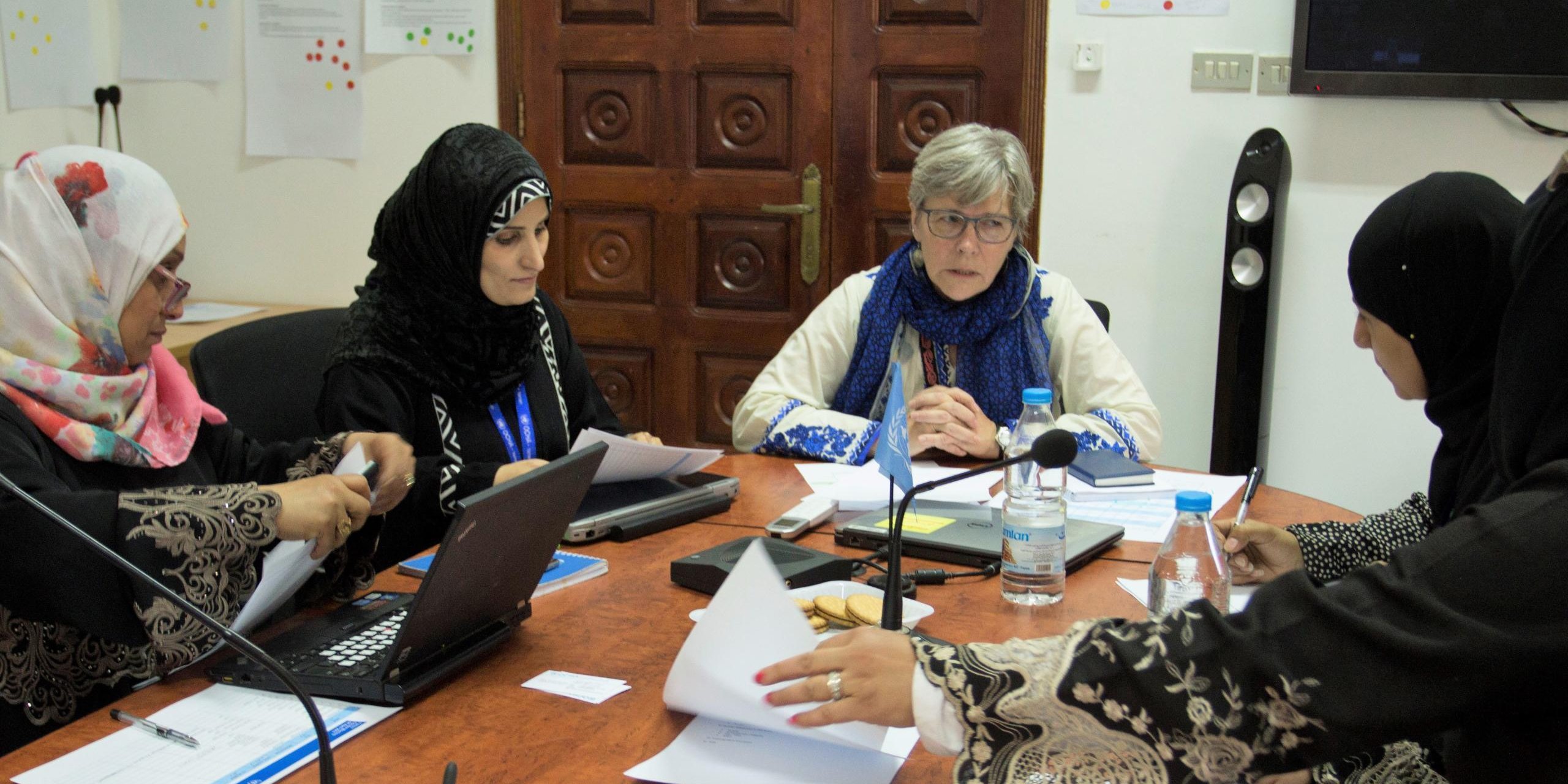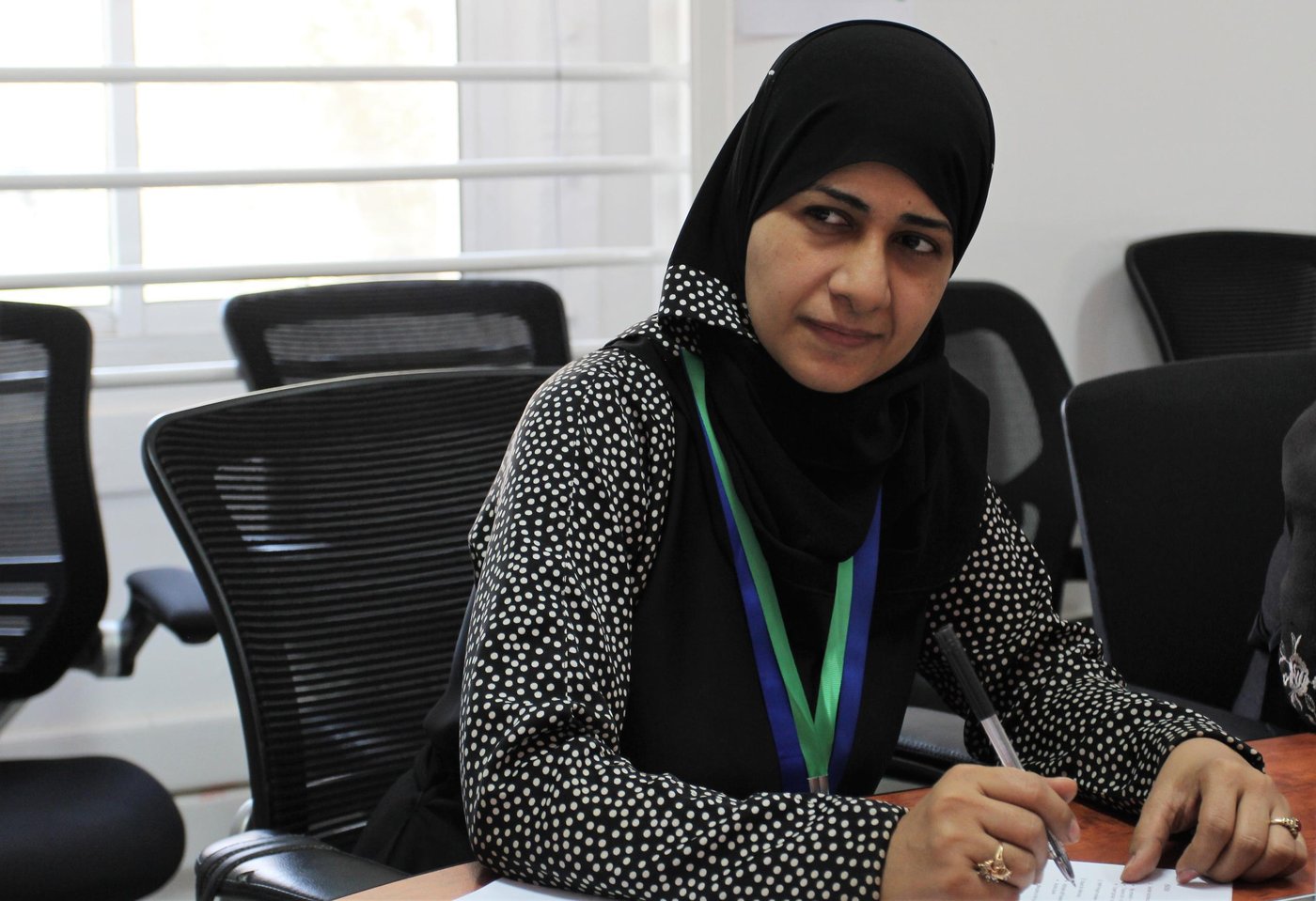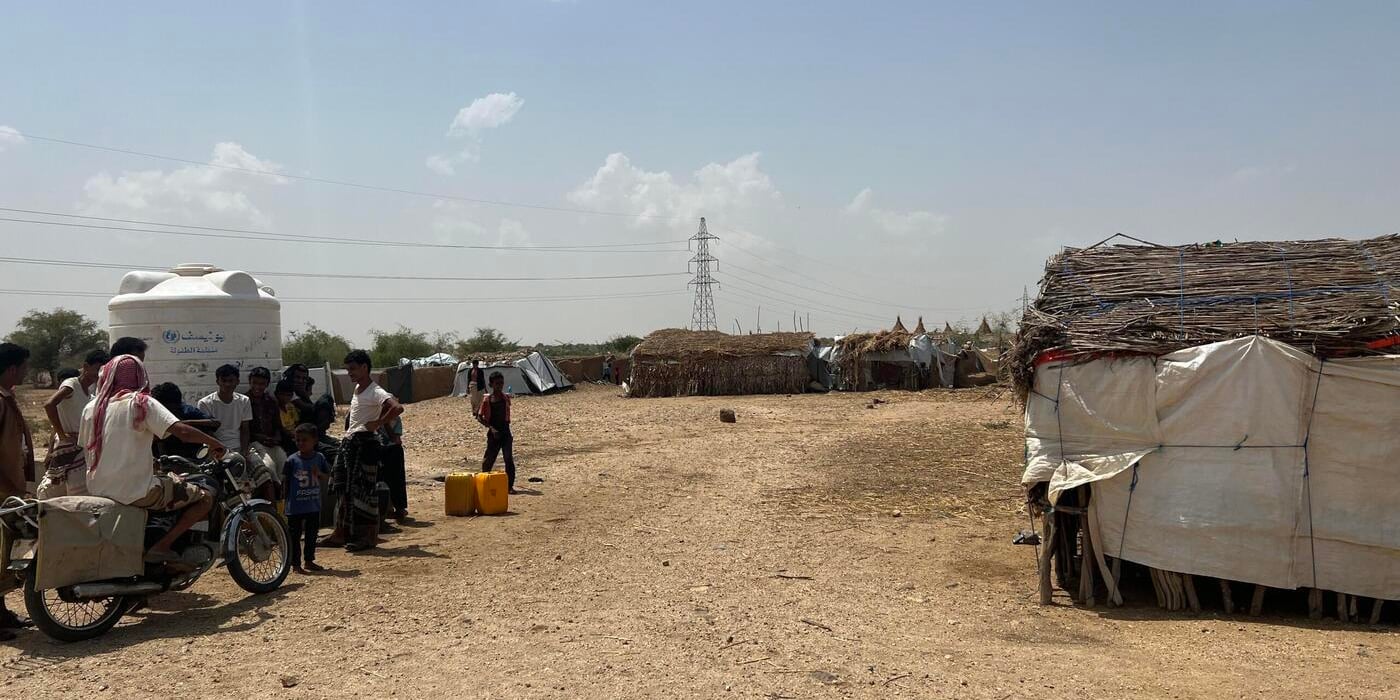
Yemen has gone through more than two years of full scale war. In 2011, the Arab spring reached Yemen, and people took to the streets to protest the government and the president that had sat for three decades. He stepped down, and a transitional government took over. A national dialogue was initiated, a dialogue that specifically included groups of women and youth.
But as the war started, economic crisis and suffering followed, and women have seen their advances being reduced and their voices left out of the conversations.
Within this context, Deborah Clifton is working as a Gender Advisor through GenCap. She advises the wider humanitarian community in the country, under the umbrella of the Humanitarian Response Plan.
"Women here are telling me that they are being marginalized more and more. You see how the war has made life more difficult for everyone, but for women this is extreme. In a climate where women were already restricted and excluded, the rhetoric against women's participation is growing. Women, and also many men, are concerned about the growing resistance to women's involvement in public arenas and decision-making," says Deborah Clifton.
Read more about the Gender Standby Capacity Project (GenCap)

Gender issues more important than ever
She works along with the Yemen Gender Network, made up of UN, NGO gender focal points, government ministry gender focal points and civil society. The group works to increase attention to gender-related issues and gaps in the humanitarian response, and that women are included and listened to when humanitarians carry out their mandate.
In addition, they advocate for women's rights towards media and entities with various degrees of power.
"Men have gone to war and are fighting, it is more important than ever that we, the women, are heard when we put our concerns forward. We see the suffering, we have lost loved ones, our situation gets worse every day. People say that now is not the time to think about women or gender issues, but actually, taking our concerns seriously is more important now than ever. We want this war to stop, we want an end to this suffering," says Dr. Husnia Al Kadri from the Gender Studies Department at Sana'a University.
"The situation is terrible, teachers have not been paid for over 6 months, and we hear stories of children fainting at school because they have not eaten breakfast," says Dr. Husnia.
"People have lost a lot"
"People have lost a lot in this war. When the war started and the airstrikes were heavy and frequent here in Sana'a, I decided to send my two youngest children to my sister in the emirates. My older children were already abroad studying. We did not think the war would last this long. Then, unexpectedly, the airport here in Sana'a closed. Now, I cannot travel to see them, and they cannot come here. I have not seen them for two years, says Layla Lutf from the Sam for Rights and Development Organisation.
"I talk with my son every day, it makes me cry, and I cannot go and see them," she adds.
Yemen was already before the war a country where women have suffered a lot. According to the global gender gap, Yemen is ranked 144 out of equally many measured countries, and as number 168 in the latest UNDP Human Development Report.
Now, following more than two years of war, the situation has only gotten worse.



